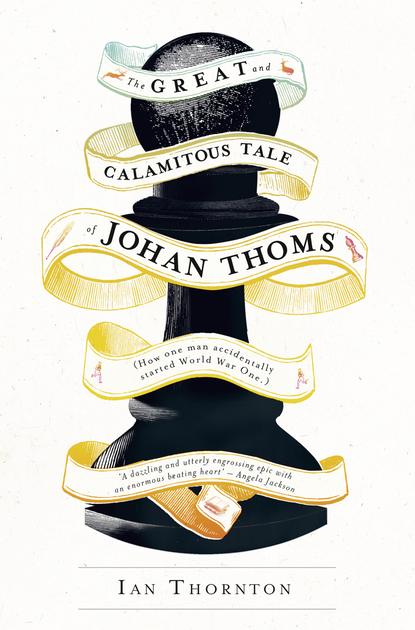По всем вопросам обращайтесь на: info@litportal.ru
(©) 2003-2024.
✖
The Great and Calamitous Tale of Johan Thoms
Настройки чтения
Размер шрифта
Высота строк
Поля
Lorelei and Dorothy Parker were great friends. It was Lorelei who made the introduction to Robert Benchley, who gave Parker her first column in Vanity Fair and her major break. Lorelei had also first shown Parker through the front door of the Algonquin Hotel, and the two ladies shared many an evening, as well as a wit, a beauty, and a style all of their own.
With a confidence one can often only paradoxically achieve in a gutless trance, Johan Thoms had volleyed back with his own second verse, off a martini-stained cuff. He started with a steadying prefix.
“Yes, but . . .”
He straightened his collar, ran a hand through his handsome hair, and added his impromptu reply.
“Yet should one escape by being cremated,
One’s respite is just belated.
Some clod will throw one’s ashes out.
And frenzied worms shall scream and shout.”
Touché!
He had winked, taken a slug from his glass, and carried on in his trance. Gibbering wreck, to poet genius, back to gibbering wreck. Lorelei had been transfixed, and the deal was as good as done.
* Although published much later, in 1927, the poem had been part of Dorothy’s repertoire for many years.
Three (#ulink_5e0be1a3-d750-5713-9918-19559d5ea5a7)
Drago Thoms: Pythagoras, Madness, and an Indian Summer in Bed (#ulink_5e0be1a3-d750-5713-9918-19559d5ea5a7)
I shall confine myself neither to Horace’s rules nor to any man’s rules that has ever lived.
—Laurence Sterne, Tristram Shandy
June 9, 1913
Four hours after Johan’s initial encounter with Lorelei and three hundred yards from the front gates of the palace, the heavens opened. It was as if God had turned on a pipe in the ceiling above a film set as Johan plowed on, unsteadily but with a steady determination. He was soaked to the bone, but he pictured Lorelei caught in the downpour, and smiled; when he stumbled ankle-deep into a puddle as he neared the Miljacka, he merely chuckled.
It was almost daylight. Normal people were already rising to go to their work, and bakers had been hard at it for hours already. Soon everyone would be scuttling around in their raincoats, their hats, their umbrellas. It made him feel sad to the pit of his stomach. Their routine, their normality—this was not where he was heading in his life. He segued off into a long train of thought on his deep hatred for umbrellas. He had thoroughly despised them ever since during a force-seven mistral, he had witnessed a young couple kebabed by an errant beach parasol while they were harmlessly copulating. Was the loss of dozens of eyes every year really a price worth paying to avoid a few thousand head colds? What sort of selfish fool would risk others’ eyes with such abandon, just to stay dry? (He had recently read in a science journal that every year, on average, sixty-three eyes were lost to umbrella spikes, but by only sixty-two people. Was someone actually unfortunate enough to lose both? If so, was this in the same incident? Or, even more worrying, two separate ones?)
“So little kindness in the world today,” he muttered. “So little thought for others.”
Then he heard himself repeating, “Bastard umbrellas, bastard umbrellas,” and shook his head to clear it.
He was almost at his dorm. He pulled out his key and slunk into the wonderful old building. The birds nesting in the ivy were tuning up for the day.
Five minutes later, Johan Thoms was on his sheltered balcony, dried off, naked on his back, fast asleep.
* * *
Moments after he awoke, Johan found himself watching a lone and final drop of rainwater overstay its welcome on the nearest leaf of ivy.
Johan turned his head away, and saw that an envelope had been slipped beneath his door. He climbed down from his perch in the window, and slid in bare feet across the shiny floorboards, as if he were ice-skating on the River Miljacka at Christmas. It was with far less grace than he wished. He could glide only three feet in his dormroom. Still, for a split second, he could pretend that he was capable of more elegance.
A line came into his head, one that in the past had seemed to leave a deep, unshiftable hollow feeling. He knew he was guilty of trying to live too fast, of wishing his life away. Yet this time the line was not unwelcome, for it reminded him of the beauty of his life right now:
“Glide gently, thus forever glide.”
He reached the doorway unscathed and picked up the envelope. The handwriting was his mother’s, and an underlying sense of dread and worry made him pause. He could not think why—he often received letters from her.
He hurriedly slipped his letter opener into the right-hand side, and flicked it open with a swish of the wrist.
Dear Johan,
Bad news, I am afraid. Your father has lost his job.
So, I hate to put this on you, son, but we need your help.
We all know how important your studies are to you (and therefore to us) and we love you for this, so God forbid they be affected.
Your father sends his love. As do I (of course).
With all my heart,Your Mama xxx
He closed the letter slowly and slipped it back into the envelope, staring straight ahead.
* * *
At night, Johan’s father, Drago, used to tell the boy fairy tales. The magical stories of Hans Christian Andersen and Wilhelm and Jacob Grimm would bring each day to a close. Drago then would return to one of his three favorite hobbies: campanology, constructing matchstick models, and collecting pinecones.
Every morning, Drago rose at six minutes past six. He showered in cold water for nine minutes. He ate a bowl of cold salted porridge. He imbibed two glasses of tepid water. He tried to put a comb through his crazy locks after he’d shaved his beard, already heavy after twenty-four hours. Johan used to love rubbing his face against his father’s five-o’clock shadow, begging his dad to give him a chin pie.
Drago left the house on the stroke of eight every morning and walked (always without an umbrella, for he, like Johan, suspected them of mischief) the two miles to school. He taught an array of subjects to an array of ages, but his lectures were always met with enthusiasm, for they were delivered at an impeccably high level.
He was a jack of all trades and a master of many: languages to philosophy, sciences to the arts.
He remembered every pupil he had ever had, their quirks and their strengths. He had a private joke with each of them. This endeared him to everyone at the school.
He instilled the love of knowledge into his own flesh and blood, too. Many evenings, Johan and Drago had sat by the fire in the living room of the old house in Argona as Drago set his eight-year-old boy mathematical problems of increasingly tough proportions, and within three years, high-end calculus, integration, differentiation, coefficients, constants, cosines, sines, tangents, and logarithms. Sheets covered by sigmas or dy/dx’s would be strewn across the deep red hearth rug, spilling over onto the surrounding mahogany floorboards. Pythagoras’s theorem on right-angled triangles followed. Then Drago passed on Pythagoras’s lesser-known theorem on beans. It is lesser known for very good reasons, for Pythagoras’s better work was—at this stage—well behind him.
Pythagoras reviled beans, for, they say, beans reminded him of testicles. Drago called it frijolophobia. Pythagoras developed an acute case of it, and could not even say the word bean.
Beans, however, just made Drago Thoms fart like a clogged sink.
* * *
THE BRIEF, YET VITAL STORY OF DRAGO’S OBSESSION WITH PYTHAGORAS
Pythagoras founded his own Orphic cult in Greece in 530 BC. His main and hugely controversial theory centered on the existence of zero. Previously, there had been no concept of zero. Greek digits had started with “one,” because who would take “zero” goats, “zero” donkeys to market?
Pythagoras proposed the existence of zero, and with it came its inevitable inverse of infinity. And if one believes in God, then one has to accept that there is a Satan. This, along with the predictable cyclical nature of mathematics, undermined the teachings of the Scriptures and the possibility of any all-seeing deity. It was heresy.
Society became split. Pythagoras and his Orphist followers broke away. They fled Greece and settled in the ancient city of Crotone, southern Italy, where they could live in relative safety from their now sworn enemies within the old order.






